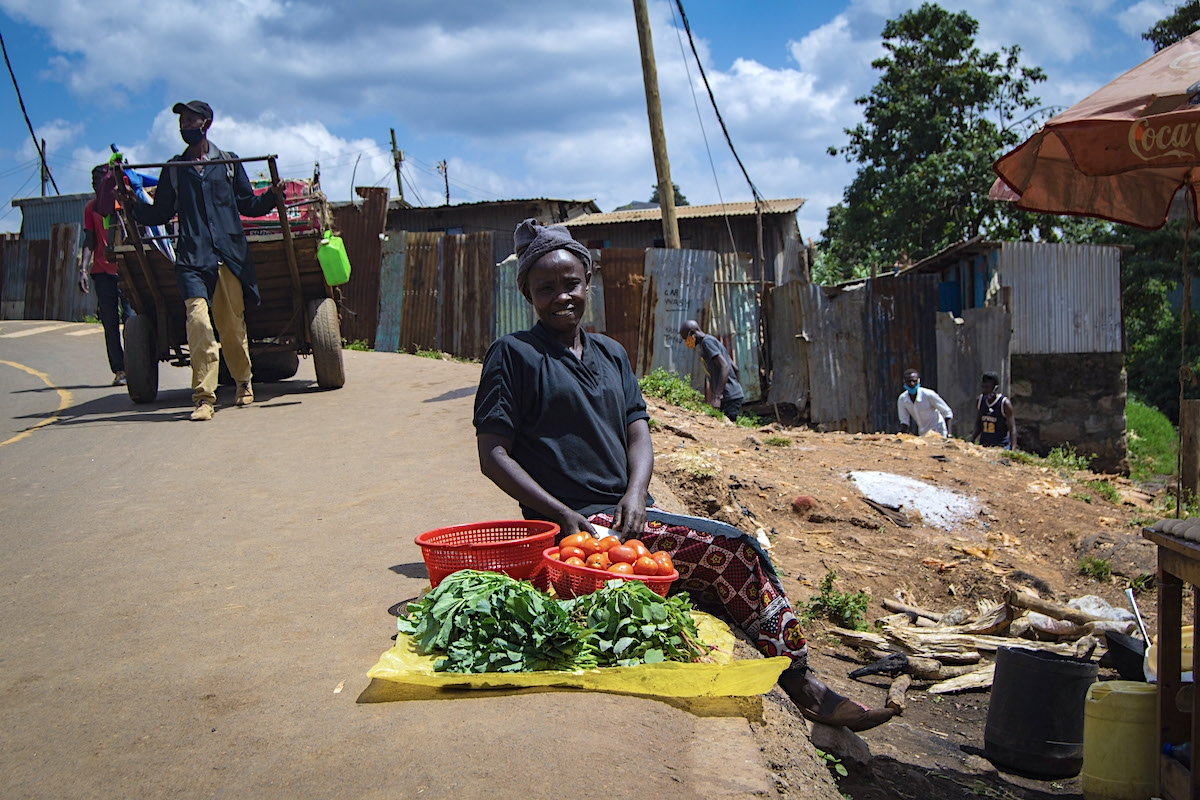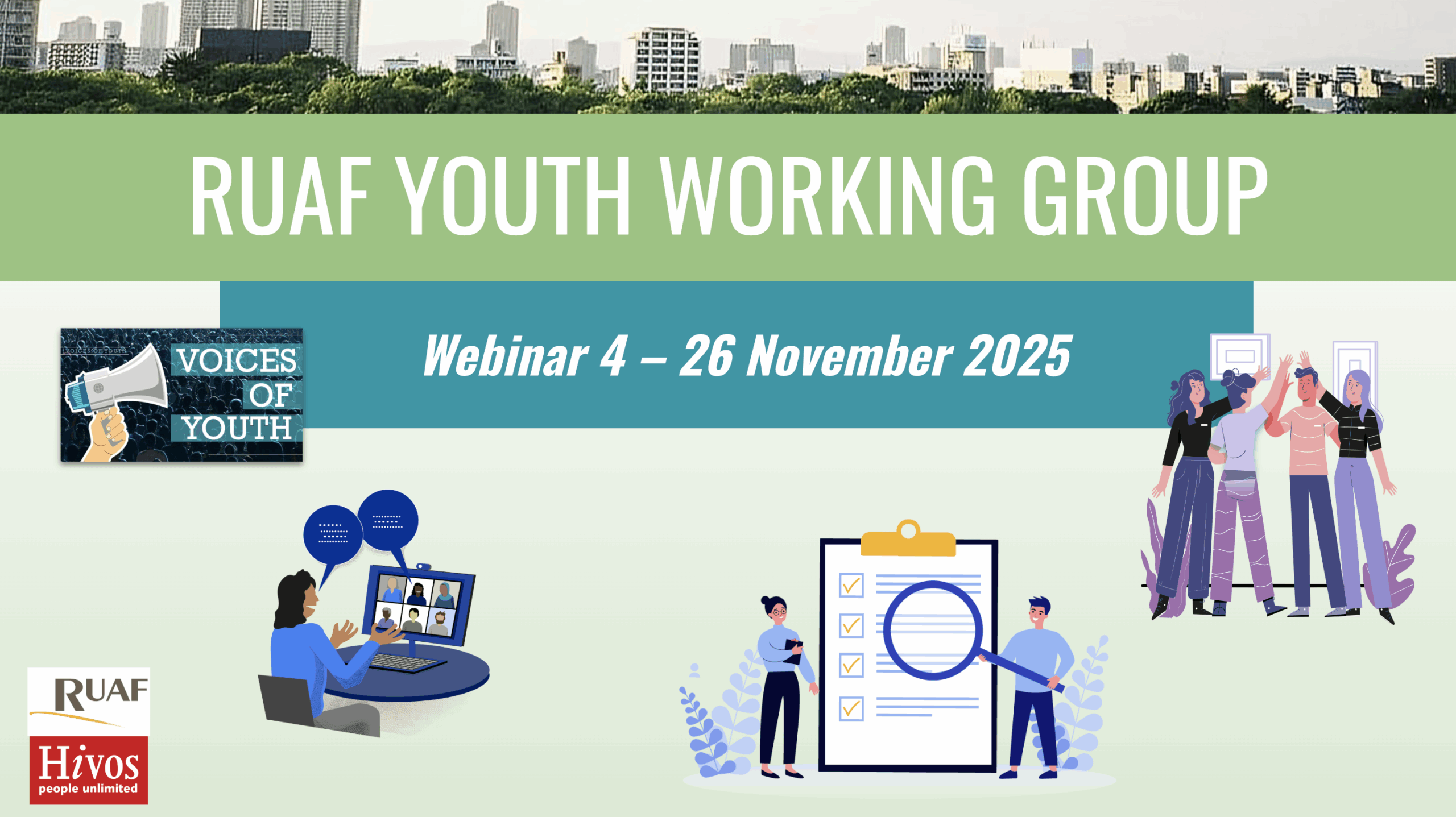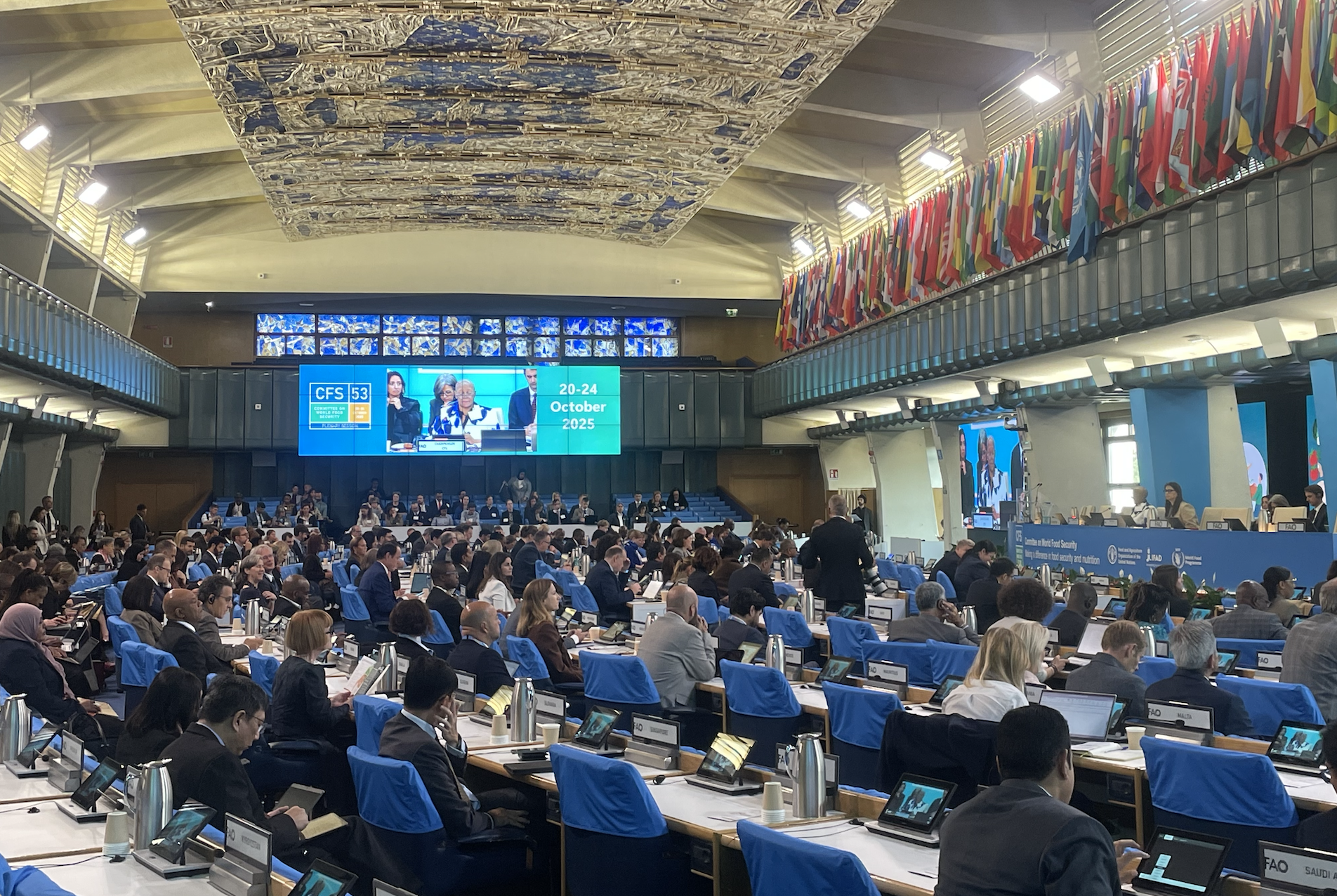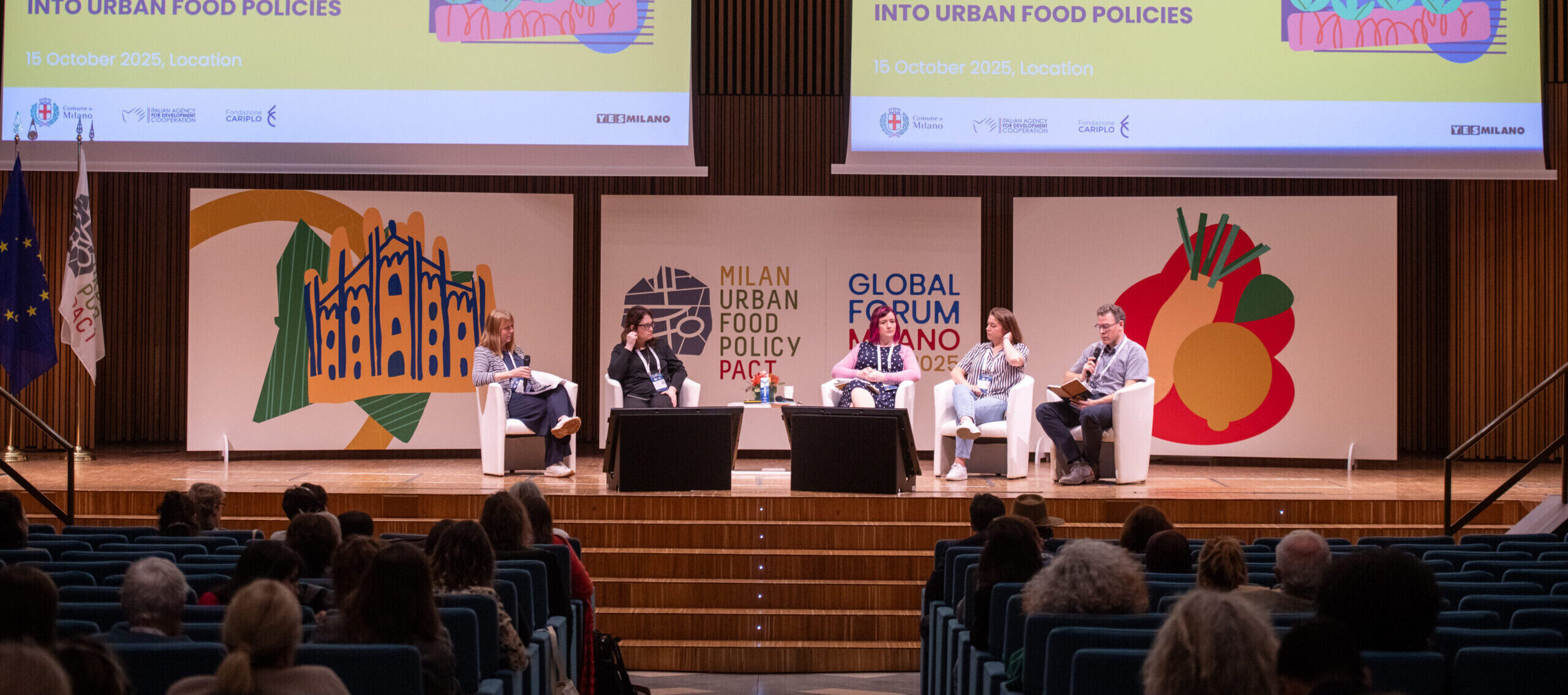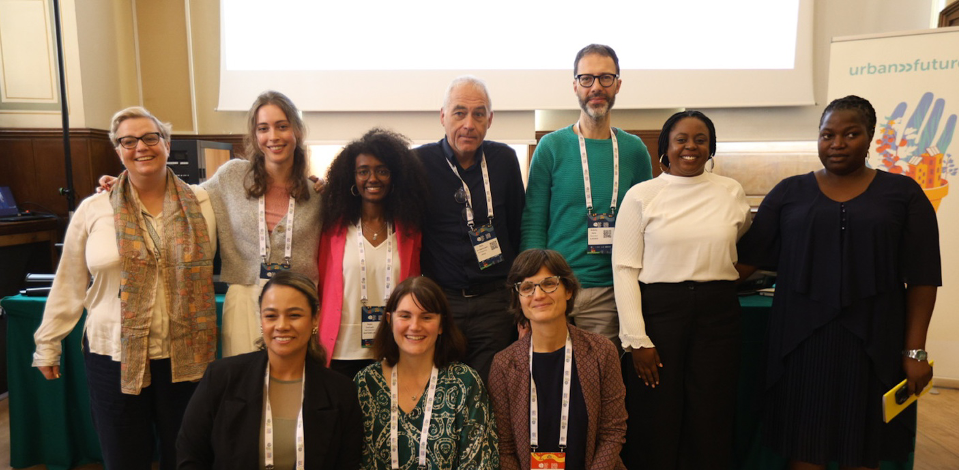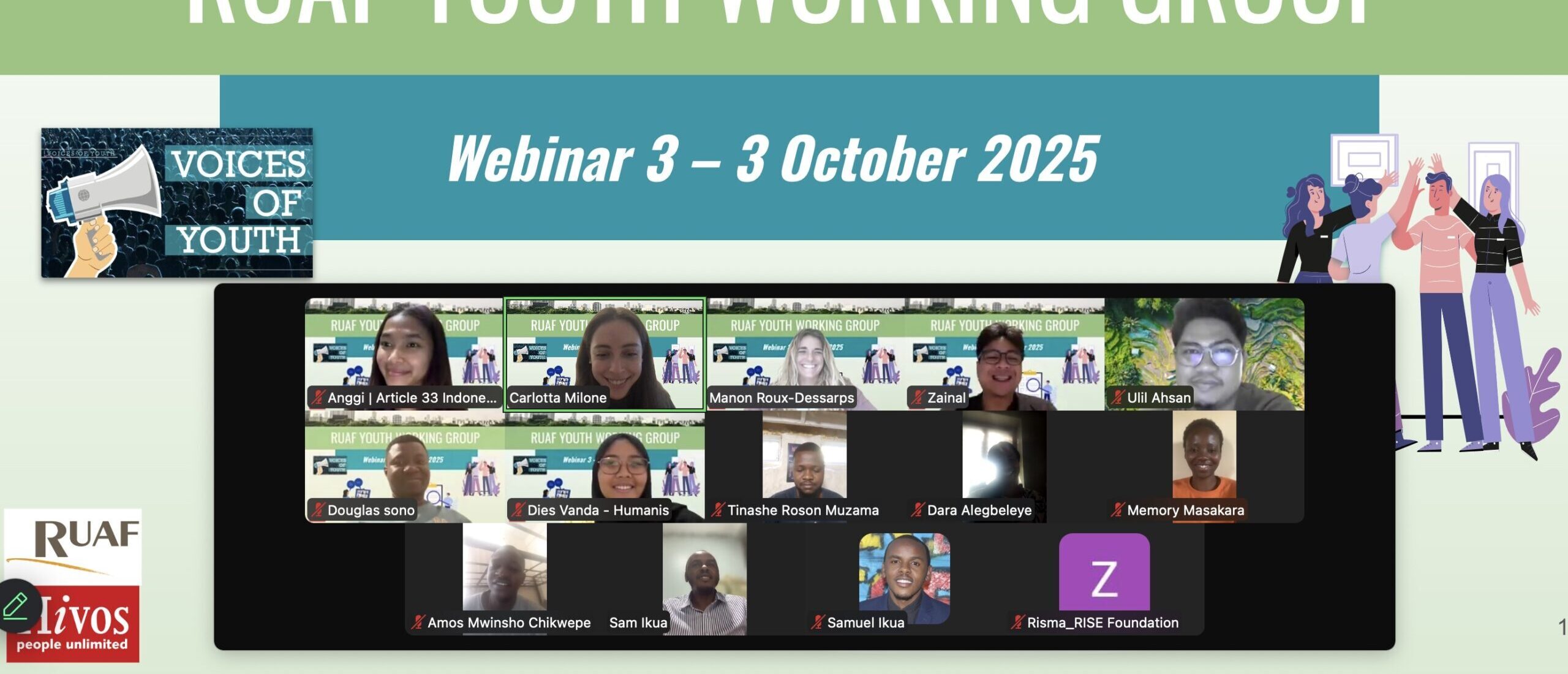Author: Carolyn Fry
This article originally appeared on: https://wle.cgiar.org/understanding-nairobi%E2%80%99s-urban-agriculture-sector-helps-enhance-equality-and-climate-resilience
Food makes up almost half of trading in the vibrant informal sector of Kenya’s capital city. Every day, farmers, processors and traders sell goods that are either locally generated or brought in from up-country. An estimated 250,000 households generate food within the city boundary. Together, these play a critical role in supplying healthy fresh fruit, vegetables and milk to Nairobi’s four and a half million people. However, as with many major cities, climate change threatens to disrupt urban food supplies. Ensuring the system is resilient to climate shocks is therefore a priority.
Nairobi passed a law supporting urban agriculture in 2015, and signed up to the Milan Urban Food Policy Pact (MUFPP) a year later. This committed Nairobi City County (NCC) to developing inclusive and resilient sustainable food systems that provide healthy and affordable food to all, in ways that conserve biodiversity, minimise waste and mitigate the impacts of climate change. However, the city lacked the means to monitor progress towards achieving this.
WLE supported the Food, Agriculture and Forestry Sector of the NCC, through Nairobi’s Mazingira Institute and the RUAF Global Partnership, to apply 12 indicators that would to help define Nairobi’s food system, and outline its progress towards meeting the MUFPP requirements. These spanned themes from ‘governance’ and ‘social and economic equity’, to ‘food production’ and ‘waste, environment and the circular economy’. The Mazingira Institute then further investigated women’s and men’s contributions to the city’s food system, and its links to climate change.
“We looked at which of the indicators would help us find out more about gender and climate change,” says Samuel Ikua Thiong’o, Project Officer at the Mazingira Institute. “We chose the indicator on the ‘number of fresh fruit and vegetable outlets’ to study gender aspects of the food system, and the one on ‘recycling of organic waste’ to investigate climate change aspects.”
Exploring gender and climate
NCC, with additional help from Wilfrid Laurier University, conducted a census of fresh fruit and vegetable sellers. They focused on two areas; one low-income, the other high-income. In both neighbourhoods, women selling fruit and vegetables from small kiosks predominated; the men who sold produce tended to do so from mkokoteni — mobile hand-carts. There was a much higher concentration of fresh produce outlets in the low-income area than in the high-income one.
To investigate the city’s food system, NCC researched and analysed policy documents and published literature. This included investigating the annual proportion of urban organic waste re-used in agricultural production.
A meeting of the Nairobi and Environs Food Security Forum (NEFSALF), an independent network of food producers and processors, was held in January 2020. This Forum, established in 2003 and convened by the Mazingira Institute, assisted with the gender and climate change analysis. The meeting sought to discuss the indicator findings and identify ways to enhance both gender equality and climate change mitigation through urban agriculture in Nairobi.
Regarding gender outcomes, farmers and processors confirmed that while more women sold produce, they depended heavily on men throughout the supply chain because men had more access to funds and resources. Respondents indicated that women were more skilled at growing vegetables and men better at rearing livestock. However, this revealed a bias, because men have traditionally raised large animals, such as cattle, as a source of wealth, whereas women have reared less lucrative livestock, such as goats and poultry.
NCC’s literature study revealed, surprisingly, that much more organic waste was being recycled on urban farms than by waste groups. It showed that urban farming was already contributing to mitigating climate change and, if organic production could be expanded, it could play an even larger role. “Urban farmers said they recycle organic waste from the market, which they use to feed their livestock, such as goats and chickens,” says Ikua Thiong’o. “And some people also use chicken droppings as food for farmed black soldier flies and also as manure for producing vegetables. The fly larvae, in turn, are used to produce animal feed.”
Participants at the NEFSALF meeting developed a wide-ranging work plan. Proposed actions around gender included: creating cross-gender common interest groups; insisting that gender data is included in policy documents by NCC; undertaking a collaborative review of supply chains with a gender lens; involving children and youth of all genders in family farming; and training women in negotiation. NEFSALF’s Women’s and Practitioner’s Hubs could make a major contribution in this regard.
Plans for enhancing climate change mitigation through waste recovery, reuse and recycling, encompassed: educating the public on waste management; learning from how other countries manage their waste; re-using plastic bottles for selling soap, creating fences and planting seedlings; using avocados not meeting export standards to produce oil or make briquettes; and assisting more farmers to make compost, and potentially sell it through NCC.
Covid-19 disrupts plans
With the work plans in place, everything was ready to begin addressing the issues raised. Then Covid-19 struck the city. This affected the food sector in many ways. Fewer goods were delivered to markets, making it hard to obtain animal feed; vegetable wholesalers put prices up, so traders could afford to buy less, reducing their own income; and seed supplies dried up, threatening continuity of vegetable supply going forward.
“Initially, the government shut down most sectors, including food markets, says Ikua Thiong’o. “People who farmed within the city were less affected by the pandemic, as buyers were able to go direct to the fields to buy vegetables. But it caused problems for those traders who sourced goods outside the city and sold them in the markets. Also, people stopped buying goat’s milk as they couldn’t afford it, so the milk went bad and those selling it lost income.”
The impacts of the pandemic clearly demonstrate why Nairobi needs to ensure its food system is resilient to climate change going forward. A flood or drought could have similar effects on supply chains, with some people prevented from sourcing produce to sell and others unable to afford to buy food. Presently, around 80 per cent of fruit and vegetables sold in Nairobi comes from outside the city, so strengthening local supplies will be critical. Having a greater understanding of the city’s food system, through the MUFPP work, provides a solid foundation on which it can build once the worst of the pandemic has passed.


